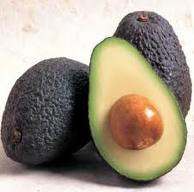
Avocados are high in fat, but they’re not fattening. In fact, avocadoes are one of the best foods for weight loss because they contain key nutrients that help stabilize blood sugar, lower the secretion of insulin, and increase metabolism.
Here’s a summary of the scientific findings about the virtues of avocados and how eating them can help you lose weight:
- Although 90 percent of the calories in avocados come from fat, the fat is the healthy unprocessed monounsaturated type, which speeds up the basal metabolic rate and helps you to burn more energy (calories). Monounsaturated fat also helps lower bad cholesterol.
- The fats in avocados are part of a “perfect package” food, accompanied by essential nutrients that help our body better absorb the fats and use them for energy.
- Research clearly indicates that monounsaturated fat exerts beneficial effects on how your body uses blood sugar. Keeping blood sugar stable is the key to weight loss. High blood sugar leads to diabetes and obesity.
- In addition to its fat, avocado contains a unique weight loss friendly carbohydrate called mannoheptulose, which reduces the amount of insulin the body produces. When the body produces too much insulin, it creates insulin resistance, which forces the body to store blood sugar as fat rather than using it for energy. Avocados are the only known food to contain mannoheptulose.
- Avocados contain the vitamins and minerals of green vegetables and the protein of meat. They contribute nearly 20 vitamins, minerals, and phytonutrients, including vitamin A (the potent antioxidant), B vitamins including folate, lutein (a phytonutrient important for the eyes), magnesium, and 60 percent more potassium than bananas.
- One medium-size avocado contains a whopping 15 grams of fiber, making it one of the most fiber-rich fruits on the planet. Diets high in fiber also help to stabilize blood sugar levels, which aids in weight loss.
- Avocados are high in a phytochemical called beta-sitosterol, that reduces the amount of cholesterol absorbed from foods, so despite its high fat content, the avocado is an excellent cholesterol buster.
- According to a study in Brisbane, Australia, eating avocados daily for three weeks improved blood cholesterol levels and reduced weight in middle-aged women better than a low-fat diet did. The daily amount of avocado ranged from ½ avocado for small women to 1½ for large women. Including avocadoes daily reduced total cholesterol by 8 percent and improved the women’s good HDL-cholesterol ratio by 15 percent. The Australian study not only reported that eating either half or a whole avocado per day for a month succeeded in lowering cholesterol levels, but at the same time most people in the study lost weight.
Avocados are wonderful in salads, but they can also be mashed into guacamole dip for veggies, and used in place of mayonnaise on sandwiches and in tuna salad, chicken salad or egg salad. Avocados can also be a great addition to smoothies, and you can even use them to make a creamy chocolate mousse!
DEE’S RECOMMENDED MAYONNAISE
Sources:
The Avocado and Human Nutrition, Bob Bergh Department of Botany and Plant Sciences, University of California, http://www.regenerativenutrition.com/content.asp?id=443
All-About-Lowering-Cholesterol.com, “Lowering Cholesterol with Avocado
Fat” http://www.all-about-lowering-cholesterol.com/avocado-cholesterol-and
-avocado-fat.html


